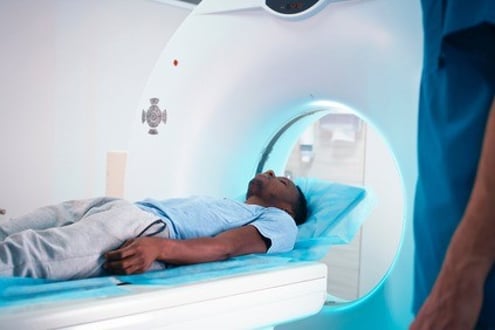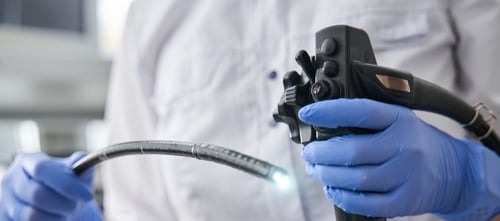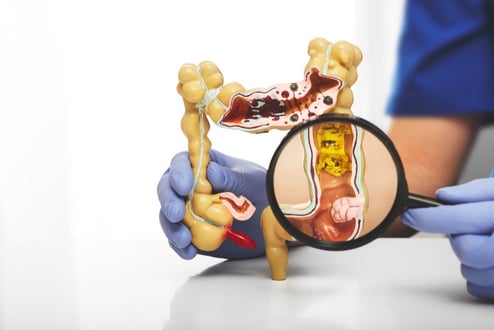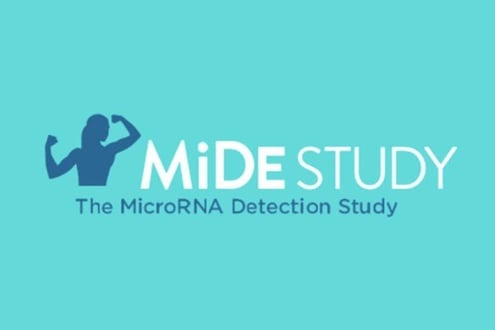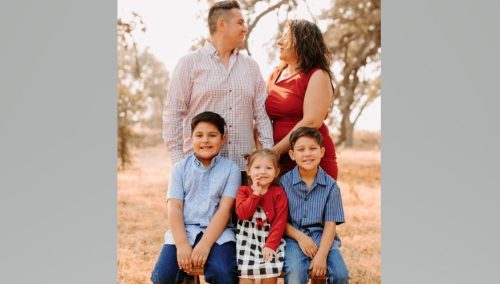PMS2: Risk Management
Risk Management for People with an Inherited Mutation
People with mutations have options for managing their increased cancer risk. We recommend that you speak with a genetics expert who can look at your personal and family history of cancer and can help you decide on a plan for managing your risk.
Risk management guidelines
NCCN provides risk management guidelines for people with mutations. You can learn more about risk management options in our section on Screening and Risk Reduction by Cancer Type.
NCCN risk management guidelines for people with mutations include information on the following cancers. People with an mutation may also qualify for clinical trials looking for more effective screening or prevention for cancer.
|
Beginning Age |
Recommendation |
|
30-35 (or 2-5 years before the earliest age of colon cancer in the family, if diagnosed before age 30) |
High quality colonoscopy every 1-3 years. Speak with your doctor about how often you should have a colonoscopy. Men, people over age 40, and people with a personal history of colon cancer or colon may benefit most from yearly screenings. |
|
No set age |
Daily aspirin can decrease the risk for colorectal cancer. The best dose and timing for aspirin is not known. Speak with your doctor about the benefits and risks, best timing and dose. |
|
Source: NCCN Guidelines: Genetic/Familial High-Risk Assessment: Colorectal, Endometrial, and Gastric; v. 1, 2025. |
|
|
Beginning Age |
Recommendation |
Additional Information |
|
No set age |
Endometrial cancer can often be caught early based on symptom awareness followed by a biopsy. Learn to be aware of the symptoms of endometrial cancer and immediately report any symptoms to your doctor. Keep a diary of menstrual cycles in order to detect any changes in bleeding. |
Symptoms of endometrial cancer include:
|
|
30-35 |
Discuss the benefits, risks and costs of an endometrial biopsy every 1-2 years with your doctor. |
Endometrial cancer screening does not have proven benefit in individuals with . However, endometrial biopsy is an accurate test for finding cancer. |
|
After menopause |
Discuss the benefits, risks and costs of regular endometrial cancer screening through transvaginal . |
Endometrial cancer screening does not have proven benefit in individuals with . Despite this, some people prefer to undergo regular screening through transvaginal . |
|
After age 50 (or personalized based on childbearing plans) |
Discuss the benefits, risks and costs of a risk-reducing hysterectomy (surgical removal of the uterus) and (surgical removal of the ). |
|
|
No specified age |
Speak with your doctor about the benefits, risks and timing of oral contraceptives or intrauterine devices (IUD). |
Oral contraceptive pills (birth control) and intrauterine devices (IUD) may lower the risk for endometrial cancer associated with . |
|
Source: NCCN Guidelines: Genetic/Familial High-Risk Assessment: Colorectal, Endometrial, and Gastric; v. 1, 2025. |
||
Other cancers
NCCN includes risk-management guidelines for additional cancers in people with other genes. However, they note that there is very little research to prove that people with mutations benefit from risk-management for other cancers unless there is also a family history of these cancers. Because of this, experts recommend following general population screening guidelines and considering your family history when managing these risks. National guidelines exist for screening the following cancers:
More Resources
Participate in Prevention Research
Below are some of our featured research studies looking at new ways to screen for, prevent or intercept cancer in people with mutations. To search for additional studies, visit our Search and Enroll Tool.
Vaccine for People at High Risk for Pancreatic Cancer
Clinicaltrials.gov identifier: NCT05013216
Using a Shorter Type of MRI as a Screening Tool for People at High Risk for Prostate Cancer
Clinicaltrials.gov identifier: NCT05384535
Pancreatic Cancer Screening Study (CAPS5)
Clinicaltrials.gov identifier: NCT02000089
The DETECT Study: Detecting Endometrial Cancer in Tampons
Clinicaltrials.gov identifier: NCT03538665
Lynch Syndrome Study to Detect Colorectal Cancer or Polyps
Clinicaltrials.gov identifier: NCT05410977
Studying the Use of Naproxen and Aspirin for Cancer Prevention in People with Lynch Syndrome
Clinicaltrials.gov identifier: NCT05411718
Hear Stories from the Community
Below are stories from FORCE members with .
March 05, 2021
December 28, 2020
Visit our Partners
Mayberry Memorial
Paying for high-risk people to receive genetic counseling and testing for Lynch syndrome.

